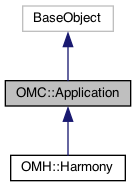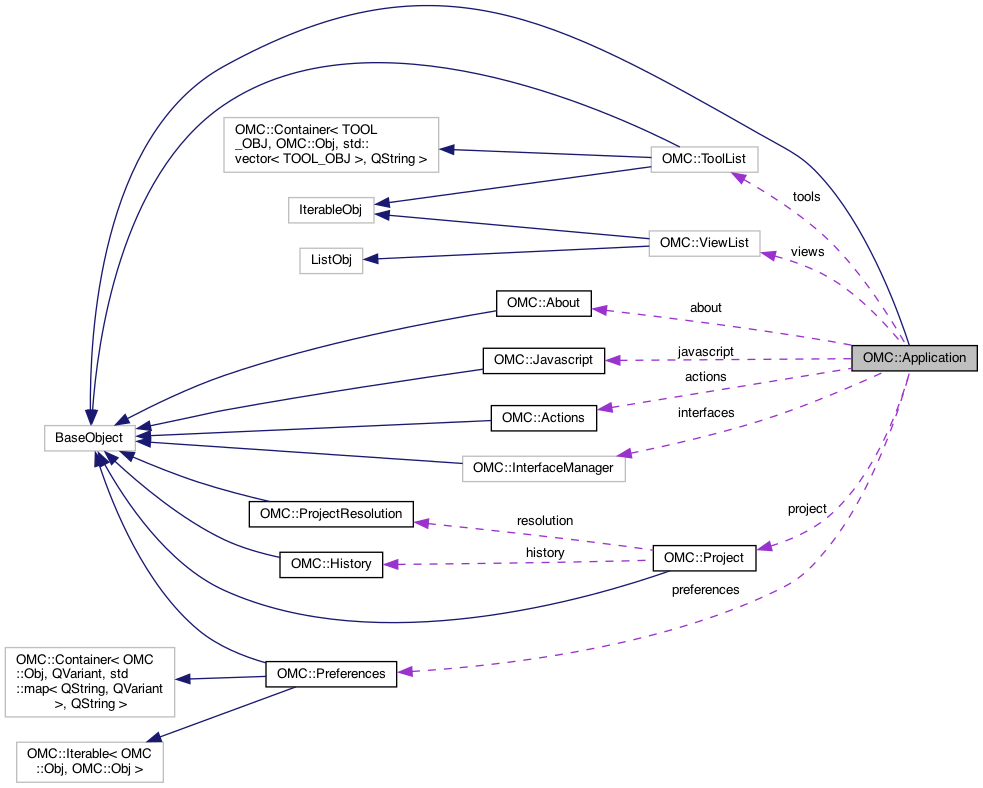
|

|
The object representing the overall running application at the base level.
The top level object, representing the currently running application, Harmony, Storyboard or Control Center. Generally provided from the main Python module's session.
Public Member Functions | |
| void | process_one_event () |
| Processes the next event in the application's event queue. More... | |
| void | log (const QString &log) const |
| Write to the application's Message Log; defaults to a trace_level log. More... | |
| void | log (const QString &log, const QString &level) const |
| Write to the application's Message Log with different levels as an option. More... | |
| void | trace (const QString &log) const |
| Write to the application's Message Log as trace output. | |
| void | debug (const QString &log) const |
| Write to the application's Message Log as debug output. | |
| void | error (const QString &log) const |
| Write to the application's Message Log as error output. | |
| void | thread_lock () |
| Locks the application to allow for a thread to process commands. More... | |
| void | thread_unlock () |
| Unlocks the application after a thread has processed commands. More... | |
| void | run_function (PyFunction function) |
| Runs the provided function while locking and unlocking the application as needed. More... | |
| void | run_on_main (PyFunction function, bool blocking) |
| Runs the provided method on the main thread. More... | |
Public Attributes | |
| OMC::Project * | project |
| Get the active project from the instance of the application. | |
| OMC::About * | about |
| Get the active about details from the instance of the application. | |
| OMC::Preferences * | preferences |
| Get the active preferences from the instance of the application. | |
| OMC::Actions * | actions |
| Get the application's actions. | |
| OMC::ViewList * | views |
| Get the application's available views. | |
| OMC::ToolList * | tools |
| Get the application's available tools. | |
| OMC::InterfaceManager * | interfaces |
| Get the DOM interface manager. | |
| OMC::Javascript * | javascript |
| Get the Javascript interface, used for interacting with Javascript scripts. | |
| void OMC::Application::log | ( | const QString & | log | ) | const |
Write to the application's Message Log; defaults to a trace_level log.
| void OMC::Application::log | ( | const QString & | log, |
| const QString & | level | ||
| ) | const |
Write to the application's Message Log with different levels as an option.
The Message Log supports three levels of output, which can be specified in this function.
Available log levels include:
| void OMC::Application::process_one_event | ( | ) |
Processes the next event in the application's event queue.
In the event that the script requires updates in the GUI, process_one_event() will ublock the application from the current script and run the next event in the application queue.
| void OMC::Application::run_function | ( | PyFunction | function | ) |
Runs the provided function while locking and unlocking the application as needed.
Similar to lock() and unlock(), this will run the provided function and lock and unlock the application as necessary.
| void OMC::Application::run_on_main | ( | PyFunction | function, |
| bool | blocking | ||
| ) |
Runs the provided method on the main thread.
Only available in the internal Python Console
Using run_on_main will send the function-call to the main thread and it is run there safely. The external thread locks until the main thread has finished.
Note– this requires that the main thread be available to run the function at some point; the call will time out if is does not become available in a timely manner.
| void OMC::Application::thread_lock | ( | ) |
Locks the application to allow for a thread to process commands.
When running in threads – accessing Harmony objects without a thread lock will result in an error. Instead, get the application's lock in the external thread, and release it when complete to regain activity in the main application thread afterwards.
| void OMC::Application::thread_unlock | ( | ) |
Unlocks the application after a thread has processed commands.
See thread_lock() for more information.

